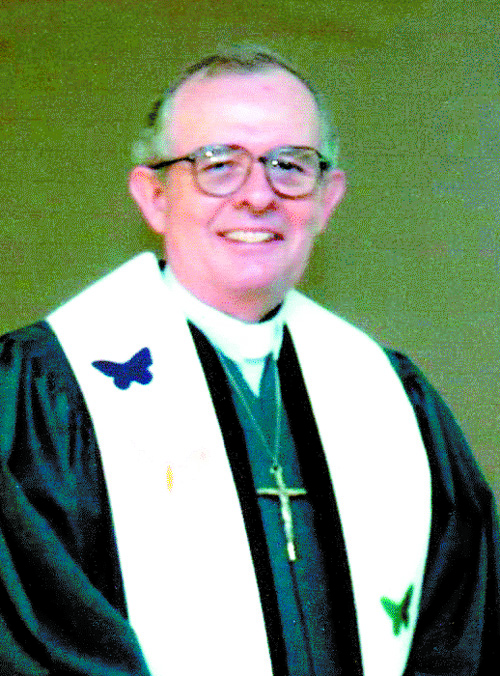Earth Notes: Somebody’s always saying good-bye

By Rev. Robert Plaisted
Guest Columnist
“It’s the same old scene, time after time. That’s the trouble with all mankind. Somebody’s always saying goodbye.” That’s a verse from a popular song written by Bob McDill and issued on a 1982 hit recording by Anne Murray. It’s also true.
It can hurt like hell to say goodbye. In the winter of 1956, as I stared at charred timbers and other debris sticking out of the fresh snow, I knew I was saying goodbye to the only home I’d ever known. The old farm buildings, which had been the functional center of my life during my first 12 years, were reduced to dust and ashes. The cows, horses and chickens, that I had helped to feed, water, milk and tend since I was very small, were all dead. Dead also, I realized, was the life I had previously experienced.
Saying goodbye is no fun, yet we have to do it every day we’re alive. Time never stands still. The past approaches us from every part of the universe, reaches us at light speed, encompasses our experiences, becomes our present for an infinitesimally small moment, and then moves on, to become the future for some other form of life elsewhere.
The relentless nature of change is a huge problem for reactionaries — people who are bound by the straitjackets of tradition and fealty to the past. They call themselves “conservatives,” but that’s a poor description of their philosophy of life. They claim to be conserving the best of the past, but no one and no thing, can achieve that. The past, once it passes by, never can be reclaimed. It’s gone as completely as the old family farm where I grew up. Thomas Wolfe was right. You can’t go home again, ever.
Reactionaries, who cling to the myth that the past can be conserved, are destined to become reactionaries who soon will be forced to say goodbye to it. I’ve just turned 80, and I’ll be saying my final goodbye in the near future. At this late date, I intend to avoid doing anything foolish to damage the Earth, and make the future more hazardous for people who survive beyond my brief sojourn here.
This raises troubling questions for climate change deniers. When will they pull their heads out of the sand? At what point will they stop denying and start believing what is happening right before their eyes? Irrefutable evidence pours over us like a tsunami. It’s been a summer like no other in memory, for violent, savage weather. Wildfires, polluted air, tornadoes, and temperatures ranging upwards of 130F have ravaged the whole planet.
June was the hottest on Earth in 6500 years; July was even hotter. Five separate heat domes scorched the northern hemisphere. Unrelenting downpours flooded dozens of cities and towns from Pennsylvania to Nova Scotia, including my hometown of Jay. It’s impossible to exaggerate how disastrous this is. Climatologists describe it as “the new abnormal.”
Denialists, however, ignore even the evidence of their own experience. True believers refuse to be persuaded by factual, scientific data. They sit stubbornly, like the proverbial frog sitting in a slowly warming pot of water. They seem determined to stay there until we all boil together. It’s not yet too late for them to ponder these facts, but it soon will be. We all live on this one, small planet, where somebody’s always saying goodbye, even reactionary science deniers.
Rev. Robert Plaisted is a retired United Methodist clergyman, formerly of Bridgton, now residing in Bath.

